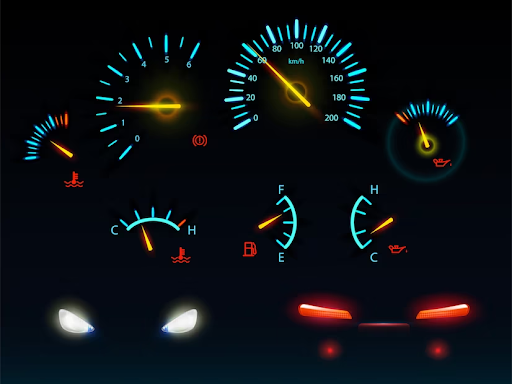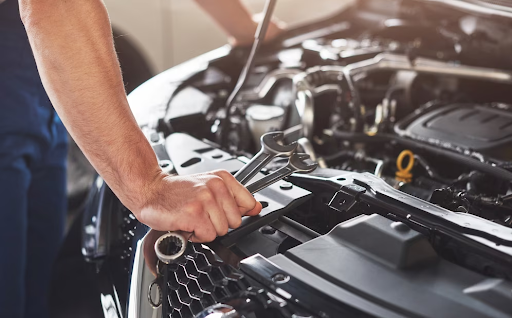As a car owner, encountering engine problems is not an uncommon experience. From minor issues like strange engine noises to more significant problems like overheating, these can affect the performance and longevity of your car. In this blog, we will be discussing the top 5 common car engine problems and how to fix them. We will be covering engine knocking, overheating, oil leaks, battery problems, and a check engine light.
- Engine Knocking
One of the most common car engine problems is engine knocking, also known as engine detonation or pinging. Engine knocking happens when the air-fuel mixture in the engine’s combustion chamber detonates unevenly. It can cause permanent damage to the engine if left unaddressed. There are several reasons why engine knocking occurs, including using low-quality fuel, dirty fuel injectors, and carbon buildup on the engine’s combustion chamber. One way to address engine knocking is by using oil additives that can help with engine noise. These additives are designed to clean the engine, reduce friction, and improve engine performance.
2. Overheating

Another common car engine problem is overheating. Overheating can be caused by several factors, including a malfunctioning thermostat, a coolant leak, a faulty radiator, or a blown head gasket. If you notice that your car’s temperature gauge is reading high or you see steam coming from under the hood, it is crucial to address the issue immediately to avoid further damage.
One way to fix overheating is by checking the coolant level in the radiator. If the coolant level is low, refill it with the recommended coolant and water mixture. If there is a leak in the radiator, it will need to be repaired or replaced. In addition, you can also clean the radiator’s exterior to remove any dirt or debris that may be blocking the airflow.
3. Oil Leaks
Oil leaks are another common car engine problem that can cause significant damage if left unaddressed. Oil leaks can be caused by several factors, including a damaged gasket or seal, a loose or damaged oil filter, or a damaged oil pan. If you notice oil spots on your driveway or garage floor, it is essential to address the issue as soon as possible.
One way to fix an oil leak is by identifying the source of the leak. Check the gaskets, seals, and oil filter for any damage. All of these components must be replaced if they are damaged. If the oil pan is damaged, it may need to be repaired or replaced. In addition, it is crucial to regularly check the oil level and top it off as needed to prevent further damage to the engine.
4. Battery Problems
Car batteries are an essential component of the car’s electrical system. When the battery is low or dead, the car will not start, and the electrical system will not function correctly. Battery problems can be caused by several factors, including a faulty alternator, a damaged battery terminal, or an old battery.
One way to fix battery problems is by checking the battery’s voltage using a voltmeter. If the voltage is low, it may be due to a faulty alternator, which will need to be replaced. If the battery terminal is damaged, it will need to be repaired or replaced. In addition, it is crucial to regularly check the battery’s age and replace it when it is nearing the end of its lifespan.
5. Check Engine Light
The check engine light is an indicator that there is a problem with the car’s engine or emissions system. It can be caused by several factors, including a faulty oxygen sensor, a loose or damaged gas cap, or a malfunctioning catalytic converter.
One way to fix the check engine light issue is by using an OBD-II scanner to identify the problem code. Once you have identified the problem, you can either fix it yourself or take it to a mechanic for repair. If the issue is a loose or damaged gas cap, it can be easily fixed by tightening or replacing the cap. If the issue is more significant, it may require a more in-depth repair by a professional mechanic.
Final Thoughts
As a car owner, it is essential to be aware of the common car engine problems and how to fix them. Engine knocking, overheating, oil leaks, battery problems, and a check engine light are all common issues that can affect the performance and longevity of your car. By addressing these issues promptly and properly, you can ensure that your car runs smoothly and avoid costly repairs in the future. By taking good care of your car, you can extend its lifespan and ensure that it runs smoothly for years to come.
